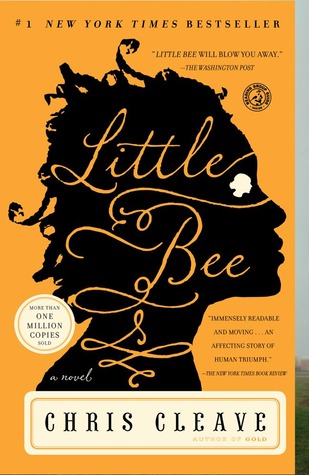
Little Bee's immigration woes are just part of the story. Back in Nigeria before she ever sets foot in the UK, she meets a British couple who came to Africa on a holiday despite the local oil war raging in the country side. This encounter changes their lives for ever. The author examines how humans react when faced with extreme danger and atrocity. What motivates one to save another human being or decide to pass by, and if one refuses to help how does that person cope with guilt and continues on living? These are timeless questions, and the author thoroughly explores them. Cleave is an extraordinary writer. The story alternates between the voices of a Nigerian and a British woman, and Cleave has no difficulty writing from a female point of view. If you are looking for something to read, look no further. I must warn though: the book has pretty graphic violence/rape descriptions.
